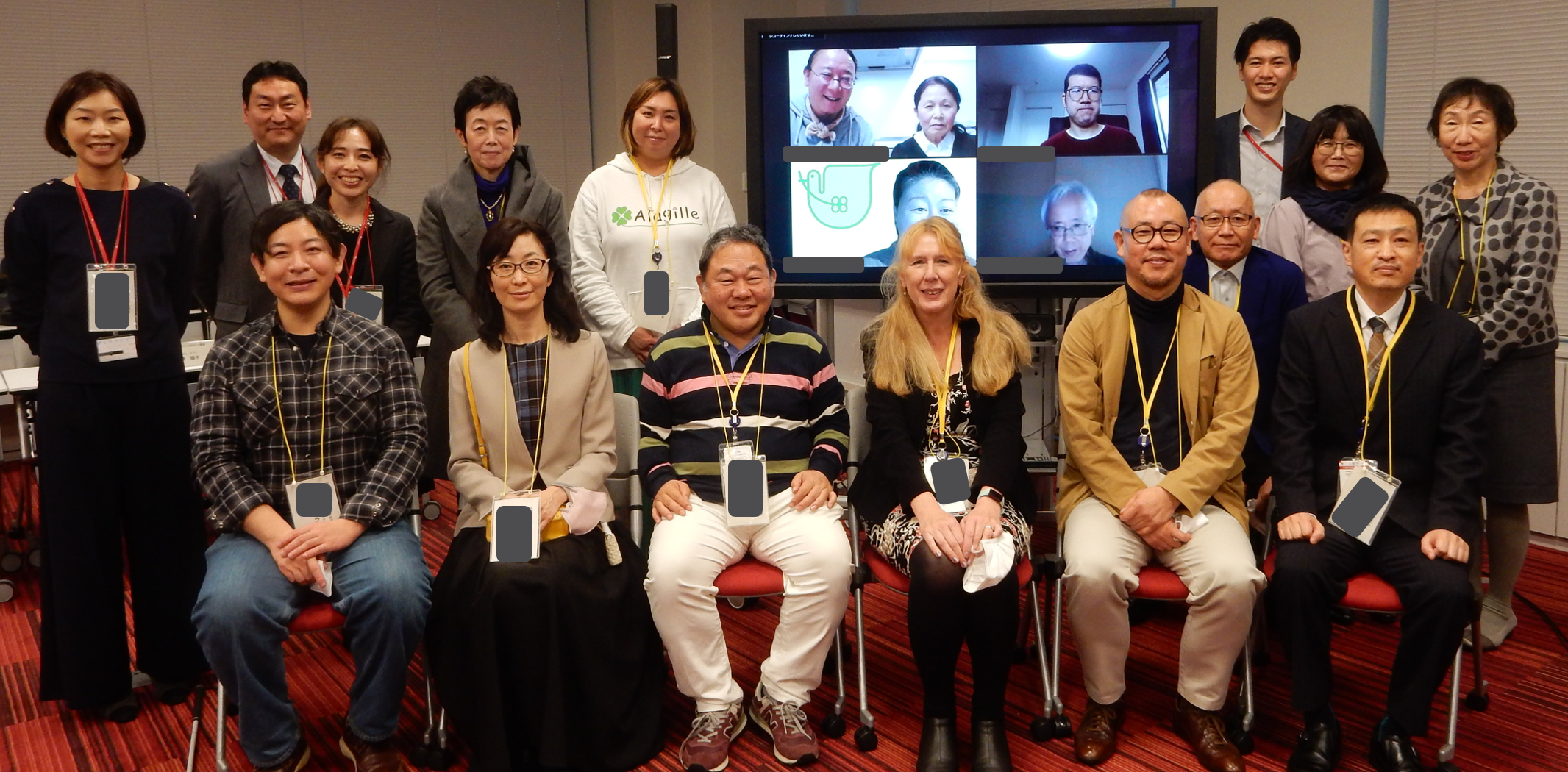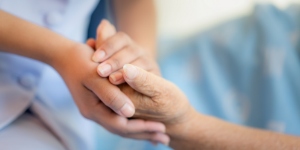Astellas’ way of supporting patient organizations focusing on people
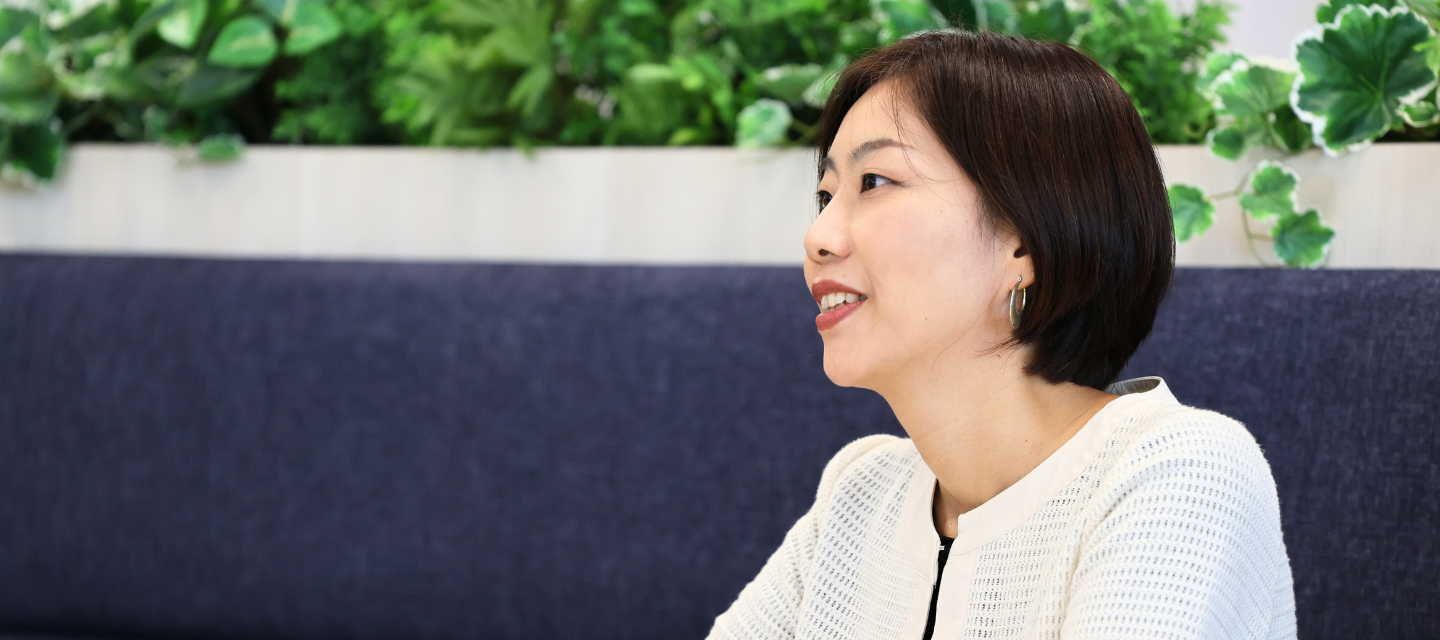
How much do you know about patient organizations? They are there to give patients with the same disease a place to support each other and learn more about their disease. They also play an important role in representing the needs of patients in society, disseminating information and working to improve treatment environments. However, not all patient organizations have the resources to do this adequately. Patient organizations for rare diseases in particular face various operational challenges.
Astellas has supported the activities of many patient organizations thus far. Yuri Ishii, from the Sustainability Division, is one Astellas employee who has been leading Astellas’ support activities for patient organizations through our Starlight-Partner Activities. Having done so over a long period, she began to wonder whether we could help more by doing things differently, and has been working hard to change how we provide support.
Since joining Astellas, Yuri’s roles have included working as a medical sales representative and as a recruiter in Human Resources. It was around ten years ago, in 2013, that she moved on to her current position of supporting patient organizations. She looks back on her career and comments, “In my previous roles I often had the opportunity to speak with external stakeholders - with healthcare professionals as an MR and with students while in Human Resources. So I have always been aware of how Astellas is viewed from the outside. Since taking on my role in patient organization support, I have had plenty of opportunities to communicate with patients. This has made me keen to keep patient perspective in mind, to listen carefully to the patient voice, and to always consider whether the support we are providing is really making a difference.”
When Yuri first took on this role, support activities centered on financial help, with patient organizations applying to Astellas for grants. Her role was administrative, dealing with all procedures from registering applications to making final grant decisions. Each year, she would read through the many application documents received and make the necessary preparations to select the grant recipients, keeping the patients’ support needs foremost in mind,
Is just financial support good enough?
However, after a while, Yuri began to wonder how beneficial it was for patient organizations to be applying for and receiving grants in the same way each year. “If we stopped providing this support, what would happen to those groups? Patients really need them, and although financial support is important, is what we are doing actually supporting their activities in the long run?” It was these doubts that kickstarted Yuri to change the way Astellas provided support to patient organizations.
One year later. Having set a limit of a maximum of three donation applications per organization, we were contacted by patient organizations that no longer met the application criteria. They voiced concerns such as, “We’re not sure how to proceed from here. We’ll be stuck without your support.” But Yuri was committed to their plight. “I realized that if we really want to support these patient organizations, we need to provide something other than just financial support. We need to support them in becoming sustainable organizations that can raise funds for themselves.”
Aiming for self-sustainability
Patient organizations, especially in Japan, are mainly run voluntarily by patients and their families. As such, it is not just funding issues that they face. Other difficulties include securing members with the appropriate skills for running an organization and gathering information. Yuri came up with the idea of a program that would teach members how to run an organization so that they could develop themselves into self-sustaining organizations. She called on the help of the Japan Philanthropic Association, which has extensive experience in providing support to NPOs and other non-profit groups. This developed into our Leadership Training Program.
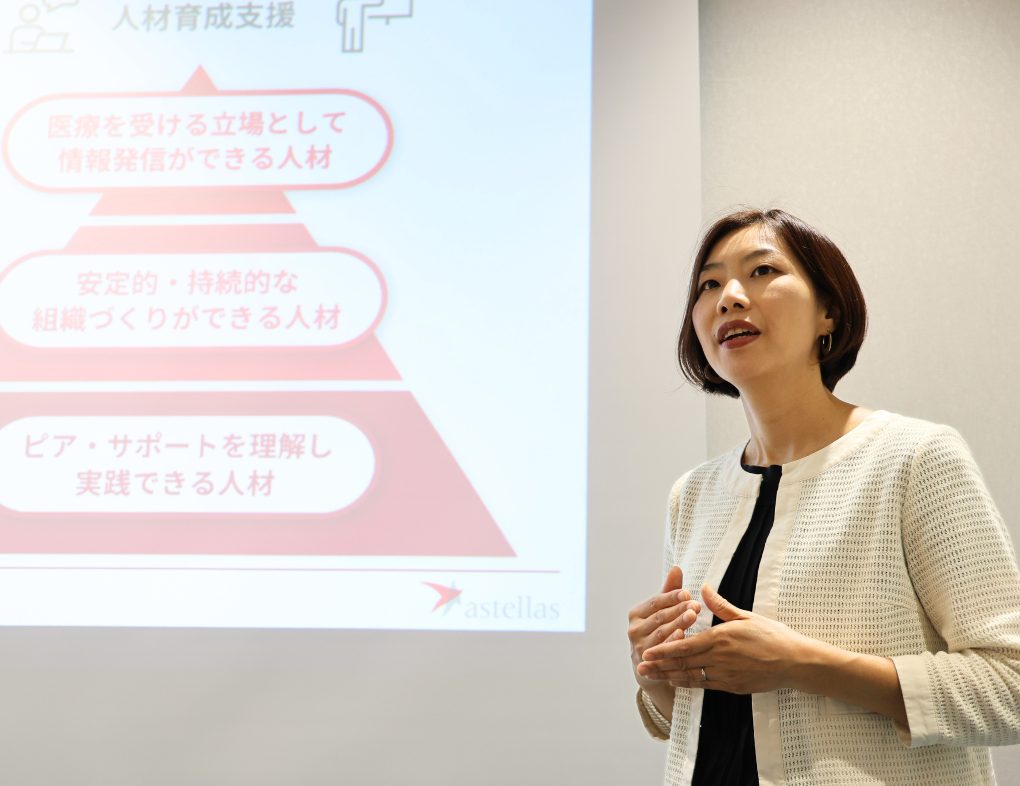
“The program covers the basic knowledge needed to run an organization, such as how to raise funds and management skills to collate peoples’ opinions. Through it, we aim for patient organizations to become proficient in raising funds for themselves and securing members with management skills, so that they can be an influential presence in society. We also hope that the training sessions will provide an opportunity for different patient organizations to collaborate with each other and share their experiences and insights.”
In addition, Yuri thought it necessary to give support regarding the distribution of information to society, which is one of the main roles of patient organizations. In recent times, there have been more opportunities for patient participation in healthcare decision-making, drug discovery and other medical matters. However, in order for patient organizations to fulfil their role in society of working to improve the treatment environment for patients, they need people who can effectively communicate information from the perspective of patients with actual treatment experience. The Patient Expert Program was launched to address this need.
“In this program, we offer support for patient organization members to take part in a training course offered by an external provider. The course gives fundamental instruction on the medical system and treatment environments, as well as training in debating skills to enable participants to effectively express their opinion at medical conferences.”
Yuri explains, “We have changed how we provide support by focusing our Starlight-Partner Activities on human resource development. By furthering their capabilities, we hope to help them become independent, self-sustaining entities, which is one of the missions of our Starlight-Partner Activities. We have also changed the way we provide donations. We now accept applications for grants from patient organizations that have participated in our skills development programs and that have clearly defined their organization’s issues. Once they have trained on the programs and have identified what they need to do to become self-sustaining organizations, we hope they will use our donations to support their activities.”
Going forward as partners
What does Yuri envision for the future of patient organization support?
“Speaking to program participants, many told me that they joined the patient organization because when they first became ill, they just wanted to speak to people with the same disease and to be listened to. They found it really helpful to be surrounded by people with the same disease. That valuable peer support led them to want to support others in the same way and so they got involved in the running of the organization. Another member said that although new drugs may not be available in his lifetime, he took part in clinical trials in the hope that a cure would be found for future generations. Such comments were very informative for me.
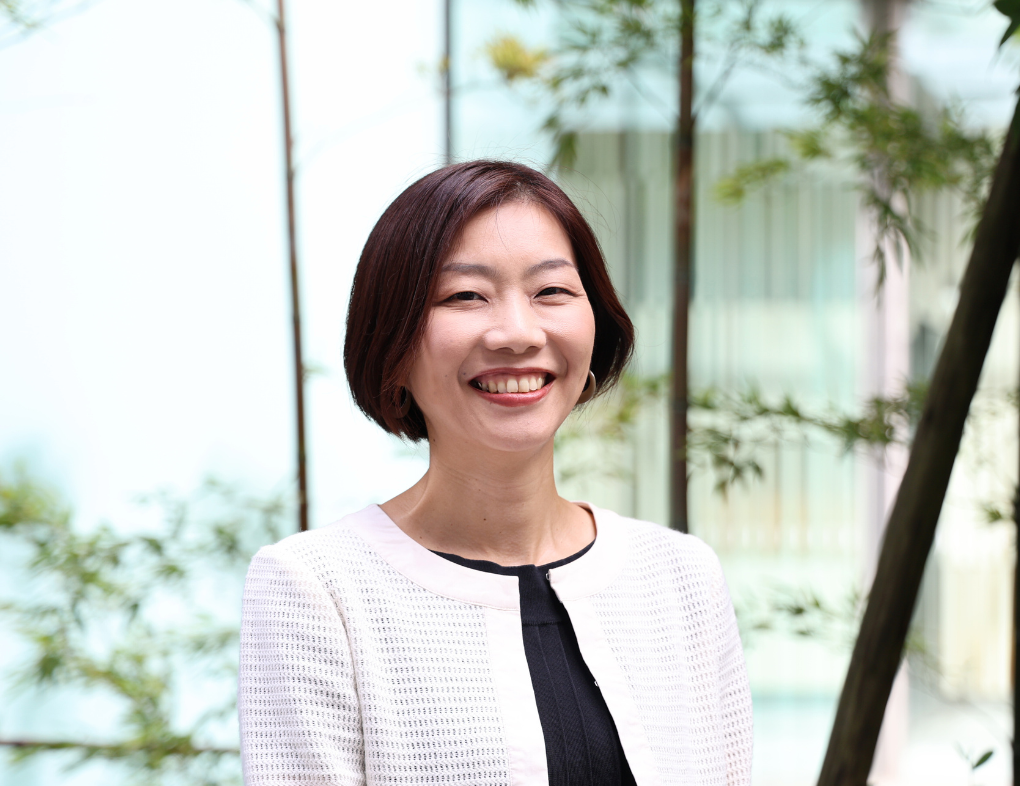
“Patient organizations play an important role for society. Although their members initially sought help for themselves, this soon evolved into a willingness to offer support to peers, and later to the want to improve society. With their desire and energy, I believe they can not only provide a place to share information and experiences, but can also contribute on a wider scale to improving people’s health and society.
“In many western countries, patient organizations are working to ensure a high level of patient involvement in drug research and development and in healthcare systems. For pharmaceutical companies like ours, patient organizations are also valuable partners in drug discovery. My goal is that through our Starlight-Partner Activities, patient organizations in Japan will become more socially influential and that by working together we can create a future where we can bring new drugs to the world.”
Related Links
